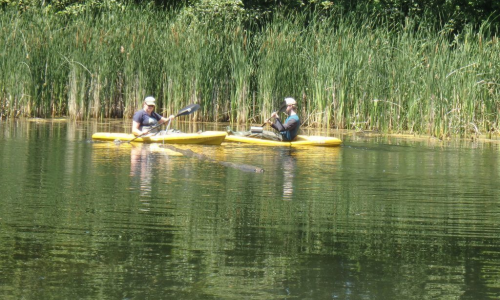
While it may seem daunting to move or travel to a new place and maintain a sustainable lifestyle when you don't have personal and cultural resources at your fingertips, there are several ways that you can practice sustainability while travelling and living abroad.
Packing
The first step to environmentally-friendly travel is in your pre-trip planning. When purchasing any last minute items that you may need for travelling/living abroad, consider sustainable options. Purchase a reusable water bottle that you can fill up on the go - this will save you money and keep disposable plastic bottles out of the world's landfills. There is a neat article about how to choose the right sustainable water bottle here. When filling up your suitcase, try to pack as light as possible - the lighter the airplane is, the less fuel burned and the better of the environment is.
Getting There
When picking your flight, you can use a variety of online resources to calculate your carbon footprint and then choose the least impactful flight (Try myclimate, terrapass, or webflyer). While it is difficult to cut out a flight to your chosen destination, it is at least something to be aware of the impact your travel can have on the environment. When you get to your chosen destination, consider taking trains or buses to get to your accommodation, as these provide energy efficient options. As a plus, trains and buses will often take you directly into the city centre, right where the action and sights are. This ultimately cuts out travel time and potential emissions.
Everyday Abroad
While living abroad, take the time to research ways in which you can live most environmentally friendly in your temporary home. If you can, buy local and in-season foods from local markets. Walk to the grocery store or around the city - not only will you get great exercise, you will see the city from a great and personal angle. For longer distances, consider purchasing a second-hand bicycle to travel to and from work or school. You will likely never find yourself caught in traffic and will again be able to enjoy the city from a new level.
Living abroad, you won't have access to your reusable container cupboard, but you can make use of the packaging from the items you will likely be purchasing. Be sure to reuse food containers - that yogurt container you finished off this morning at breakfast would make a great container to transport your lunch to school or work in. Likewise, margarine and jam jars are great for holding leftovers for tomorrow's dinner.
Green Sightseeing
Rather than picking up a hard copy of a guide book, which will add weight to your luggage, consider purchasing a paper-free guidebook to view on your smart phone or at a local internet café. Talk to locals or ask for advice at the reception desk of your accommodation to find out the best places to visit and see and how to get there. If you pick up city maps, be sure to keep them as a souvenir or find a place to recycle them.
If you can't walk to a location, take public transit instead of a taxi. Or, if you are feeling lively, rent a bicycle and use your own power to get yourself there! These options are more cost effective AND better for the environment.
Adapt your Green Philosophy
Just because you are living in a new city and country, does not mean that you should forfeit all environmental knowledge you have and live wastefully. The great thing about living abroad is that you get to see social issues from a different perspective. Your new city might be great at providing local food options at great prices, but you might be hard-pressed to find a recycling bin in a public location. Then again, in other parts of the world, you will find more people on bicycles than cars! It can be really eye-opening to find out what different cultures view as more or less important in the world of sustainability. Considering sustainability from an alternative angle really puts your own culture into perspective - you may come away with new ideas on how to live sustainably back home.
What else?
If you would like to read further about how you can make your travels greener, visit the following websites for more information:
-
There is a great breakdown of the different types of sustainable travel (eco-conscious vs. eco-friendly vs. eco-tourism, etc) at Go Green Travel Green.















